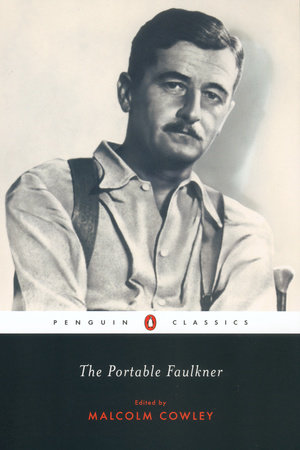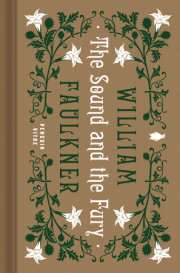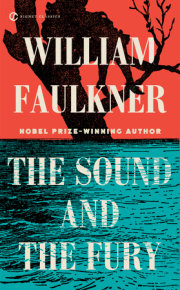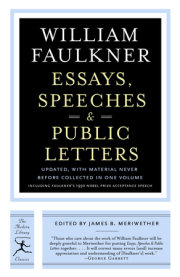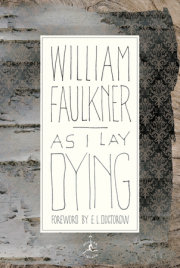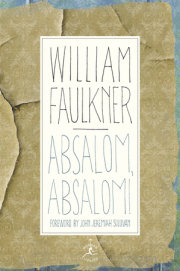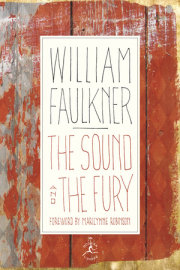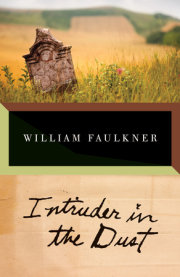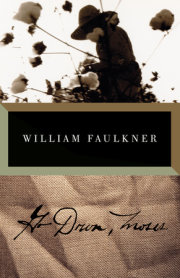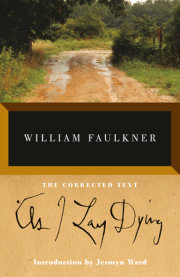The Portable FaulknerIntroduction by Malcolm Cowley
Books by William Faulkner
1. The Old People
Editor's Note
1820. A Justice
1833. The Courthouse (A Name for the City)
(From Requiem for a Nun)
18 . Red Leaves
1859. Was
(From Go Down, Moses)
2. The Unvanquished
Editor's Note
1864. Raid
(From The Unvanquished)
1869. Wash
1874. An Odor of Verbena
(From The Unvanquised)
3. The Last Wilderness
Editor's Note
1883. The Bear
(From Go Down, Moses)
4. The Peasants
Editor's Note
1908. Spotted Horses
(From The Hamlet)
5. The End of an Order
Editor's Note
1902. That Evening Sun
1918. Ad Astra
1924. A Rose for Emily
1928. Dilsey
(From The Sound and the Fury)
6. Mississippi Flood
Editor's Note
1927. Old Man
(From The Wild Palms)
7. Modern Times
Editor's Note
1928. Death Drag
1929. Uncle Bud and the Three Madams
(From Sanctuary)
1930. Percy Grimm
(From Light in August)
1940. Delta Autumn
(From Go Down, Moses)
8. The Undying Past
Editor's Note
1951. The Jail (Nor Even Yet Quite Relinquish—)
(From Requiem for a Nun)
1699-1945. Appendix: The Compsons
1950. Address upon Receiving the Nobel Prize for Literature

